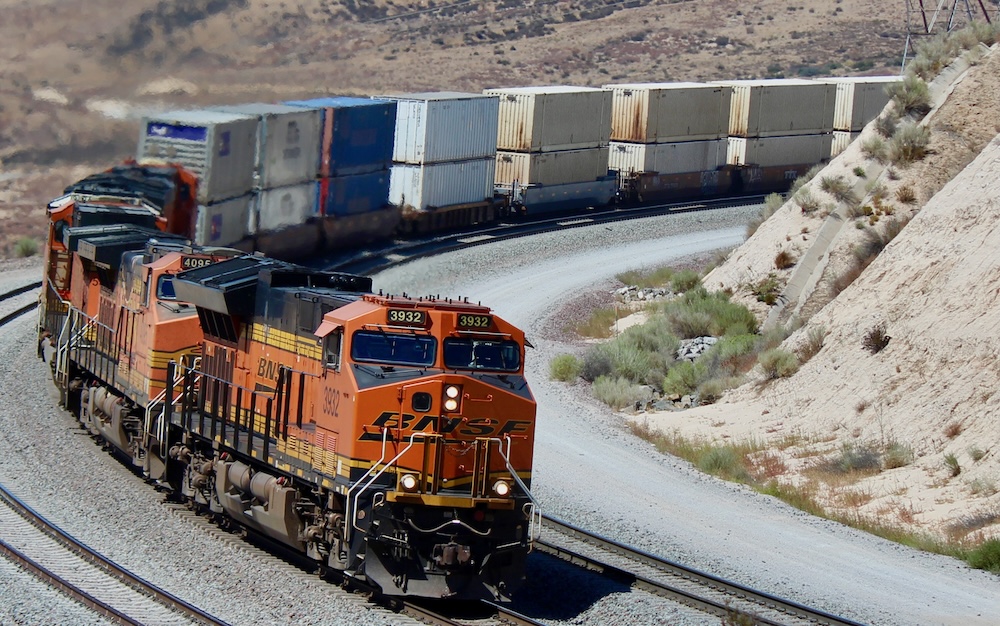CARB concludes zero-emissions locomotives are ready-to-roll after hypothetical “paper test” over Cajon Pass.

The state’s Air Resources Board analyzed the potential use of battery-electric and hydrogen fuel cell locomotives on Cajon Pass, but rail industry tells congressional panel that there are no current contenders to replace the diesel.
The California Air Resources Board pitted a standard diesel-electric locomotive consist against zero-emissions alternatives – including battery-electric models from Wabtec and ProgressRail as well as CPKC’s hydrogen fuel cell locomotive – in a hypothetical test run from the Port of Los Angeles to Barstow, Calif.
The analysis concludes that the current zero-emissions locomotives could handle a 130-car double-stack train on the 174-mile run, which includes the 2.2% climb up Cajon Pass.
CARB’s locomotive analysis – conducted all on paper, rather than on rails – evaluated the performance of a typical diesel consist with 4,400-horsepower locomotives, Wabtec’s FLXdrive heavy-haul battery electric, ProgressRail’s SD70J-BB battery electric, and CPKC’s hydrogen fuel cell locomotive accompanied by a tender that would carry extra hydrogen fuel.
CARB on Jan. 1, 2024 imposed an in-use locomotive rule that requires switching, industrial, and passenger locomotives to be zero-emissions by 2030 and freight line-haul locomotives to be emissions-free by 2035. The controversial rule, which is tougher than federal regulations, must be approved by the U.S. Environmental Protection Agency. Railroads have challenged the rule in federal court and have lobbied against it, including a recent House Investigations & Oversight subcommittee hearing.
Read the full story in Trains Online.